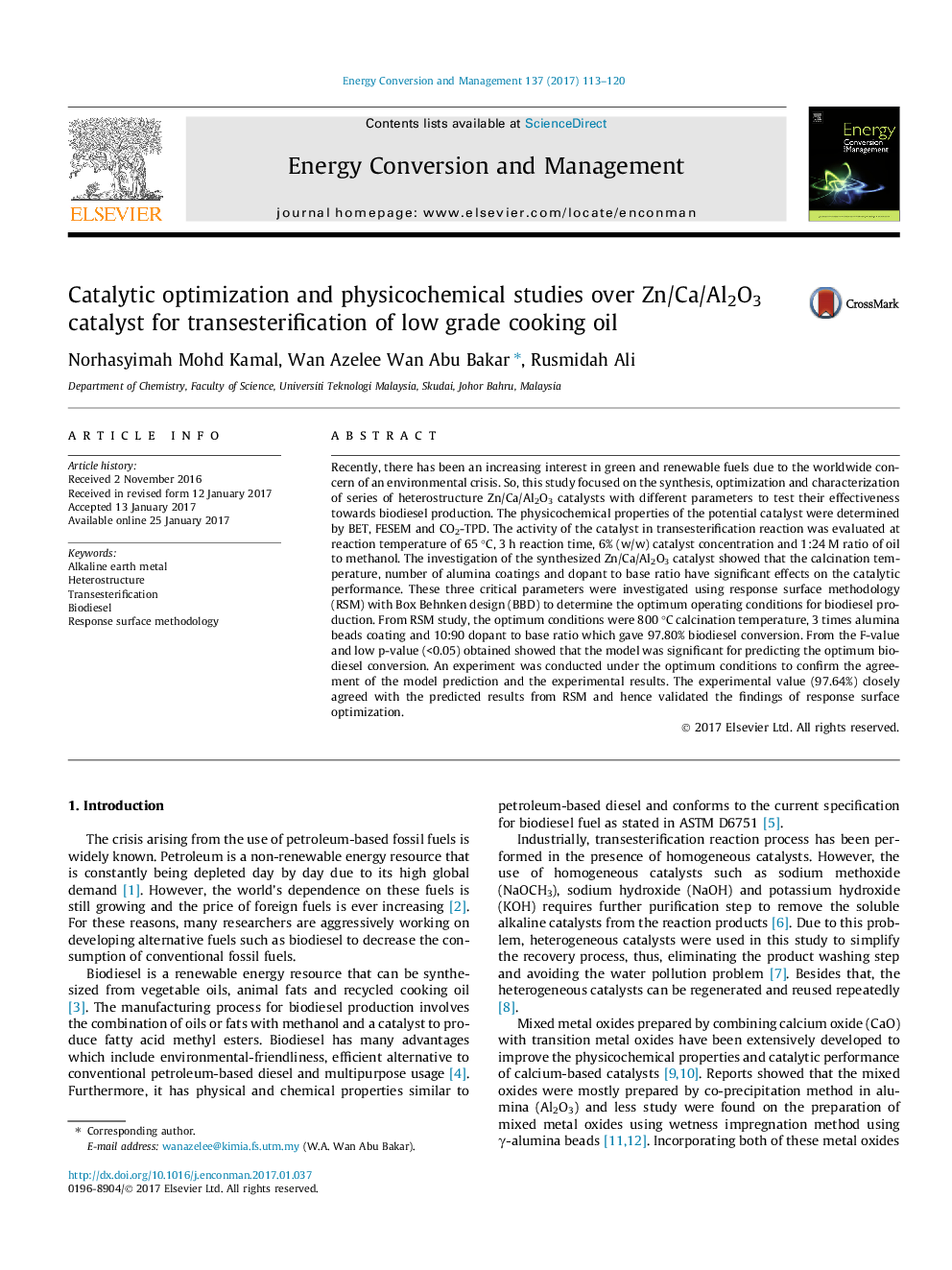| Article ID | Journal | Published Year | Pages | File Type |
|---|---|---|---|---|
| 5013034 | Energy Conversion and Management | 2017 | 8 Pages |
Abstract
Recently, there has been an increasing interest in green and renewable fuels due to the worldwide concern of an environmental crisis. So, this study focused on the synthesis, optimization and characterization of series of heterostructure Zn/Ca/Al2O3 catalysts with different parameters to test their effectiveness towards biodiesel production. The physicochemical properties of the potential catalyst were determined by BET, FESEM and CO2-TPD. The activity of the catalyst in transesterification reaction was evaluated at reaction temperature of 65 °C, 3 h reaction time, 6% (w/w) catalyst concentration and 1:24 M ratio of oil to methanol. The investigation of the synthesized Zn/Ca/Al2O3 catalyst showed that the calcination temperature, number of alumina coatings and dopant to base ratio have significant effects on the catalytic performance. These three critical parameters were investigated using response surface methodology (RSM) with Box Behnken design (BBD) to determine the optimum operating conditions for biodiesel production. From RSM study, the optimum conditions were 800 °C calcination temperature, 3 times alumina beads coating and 10:90 dopant to base ratio which gave 97.80% biodiesel conversion. From the F-value and low p-value (<0.05) obtained showed that the model was significant for predicting the optimum biodiesel conversion. An experiment was conducted under the optimum conditions to confirm the agreement of the model prediction and the experimental results. The experimental value (97.64%) closely agreed with the predicted results from RSM and hence validated the findings of response surface optimization.
Keywords
Related Topics
Physical Sciences and Engineering
Energy
Energy (General)
Authors
Norhasyimah Mohd Kamal, Wan Azelee Wan Abu Bakar, Rusmidah Ali,
